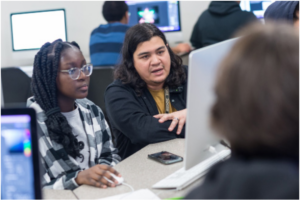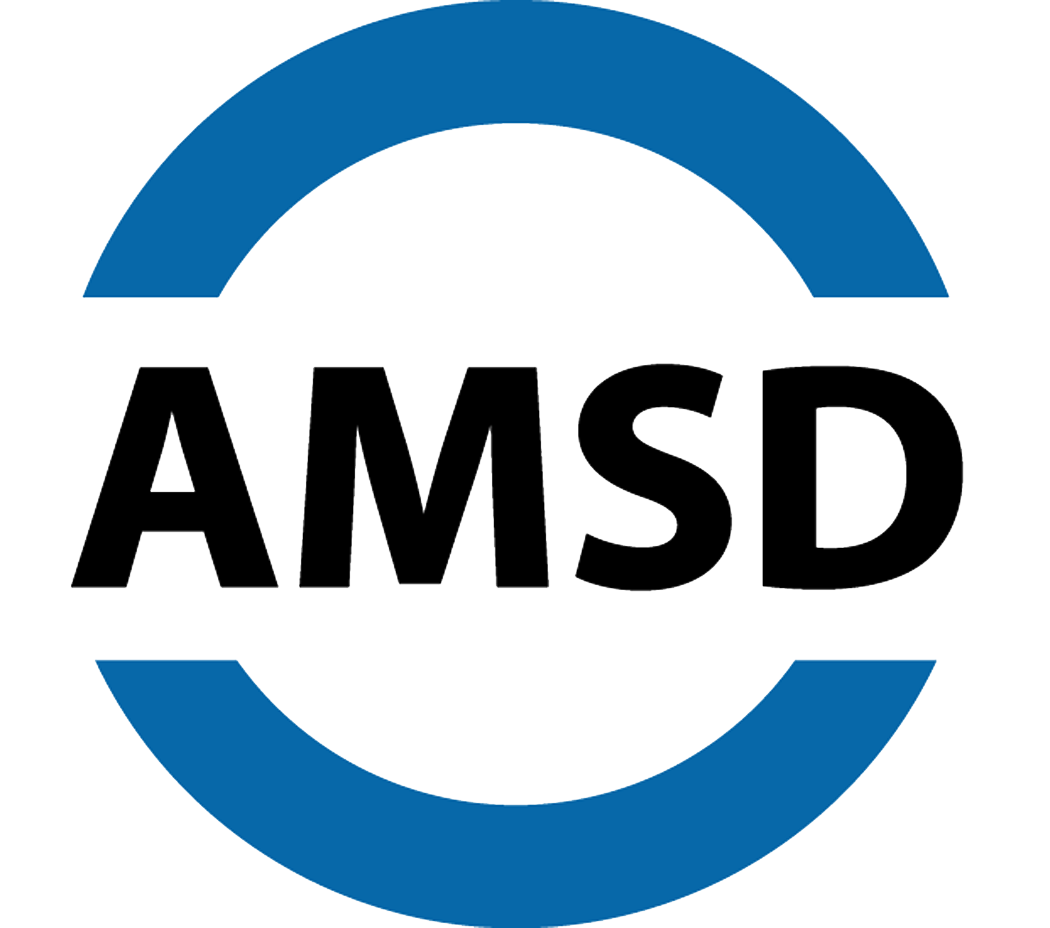KnowledgeWorks Report Outlines Strategies for Moving Student-Centered Learning Forward
For years, leaders from Association of Metropolitan School Districts (AMSD) member districts have advocated for state policies that support student-centered learning environments.
In keeping with its mission — to advocate for member school districts so they can lead the transformation of public education — AMSD continues to research and support state policy to do just that.
In spring 2023, AMSD, in part with a grant from the Minneapolis Foundation, commissioned the national education nonprofit KnowledgeWorks to help research current Minnesota law and policy — and then identify, through a statewide survey of education stakeholders, how the state could more effectively support student-centered learning in state law and policy.

(Photo courtesy South Washington Schools)
KnowledgeWorks began the project by conducting a statewide survey of classroom teachers, school and district leaders, and community members, along with researching Minnesota’s K-12 policies. The group then, with AMSD, held several focus groups through the summer and fall of 2023 to further explore what policies educators felt could further personalize learning and improve competency-based learning environments for students.
The data collected identified three key areas where stakeholders felt state policy could better support student-centered learning opportunities:
• Fostering a culture of innovation — build on existing structures to foster a stronger culture of innovation that bolsters personalized and competency-based learning.
• Creating comprehensive supports for educators and leaders — integrate customized learning opportunities oriented around personalization into pre-service teaching programs and professional development offerings.
• Rethinking K-12 assessments — create opportunities for local communities to explore innovative assessment approaches by creating a pilot program and banks of model performance tasks and engage stakeholders to leverage existing opportunities and create new ones.
KnowledgeWorks then crafted specific recommendations for AMSD and state policymakers to further consider in 2024 and beyond.
Culture of Innovation
Minnesota has several existing laws and policy structures that can allow schools and districts to implement student-centered practices already. Education Evolving’s guide on the topic provides an over- view of the currently available flexibilities. KnowledgeWorks recommends that Minnesota could craft a statewide vision for personalizing learning, as well as develop clearer policy language and guidance around how schools and districts can leverage existing structures to create innovative school structures. The state also could create new structures to provide direct support to districts that want to deepen student-centered learning.
Comprehensive support for educators and leaders
Minnesota currently offers opportunities for educators to engage in areas essential to creating personalized learning environments, such as culturally responsive practices and instruction. As a next step, KnowledgeWorks sees an opportunity for Minnesota to build on its existing opportunities for educators to create personalized learning environments by integrating similar opportunities into pre-service and professional development offerings. The state could also consider how existing net- works and resources could be retooled to incorporate elements of personalization.
Student-centered approaches to K-12 assessment
Minnesota has previously undertaken meaningful work to reimagine the state’s assessment system, notably through a 2017 state working group on rethinking the state’s K-12 tests that included AMSD membership. As a next step, the state could reexamine these recommendations and consider how to put them into action. The state could also create resources like pilot programs or banks of model performance tasks to support locally driven assessment innovation.
Support for innovation and student-centered learning opportunities have long been a hallmark of AMSD districts. AMSD’s 2024 Legislative Platform urges state lawmakers to increase student-centered learning opportunities by creating alternative pathways to graduation and allowing students to earn credit for learning wherever it occurs. The platform also urges state policymakers to use the flexibility allowed under the ESSA to reduce the number of required standardized tests so school districts can offer assessments that more accurately measure growth, proficiency, and college or career readiness.
As state education leaders and legislators consider funding and policy initiatives for Minnesota’s current and future students, AMSD hopes this research can help guide the development of student-centered learning environments to better serve all students for generations to come.
